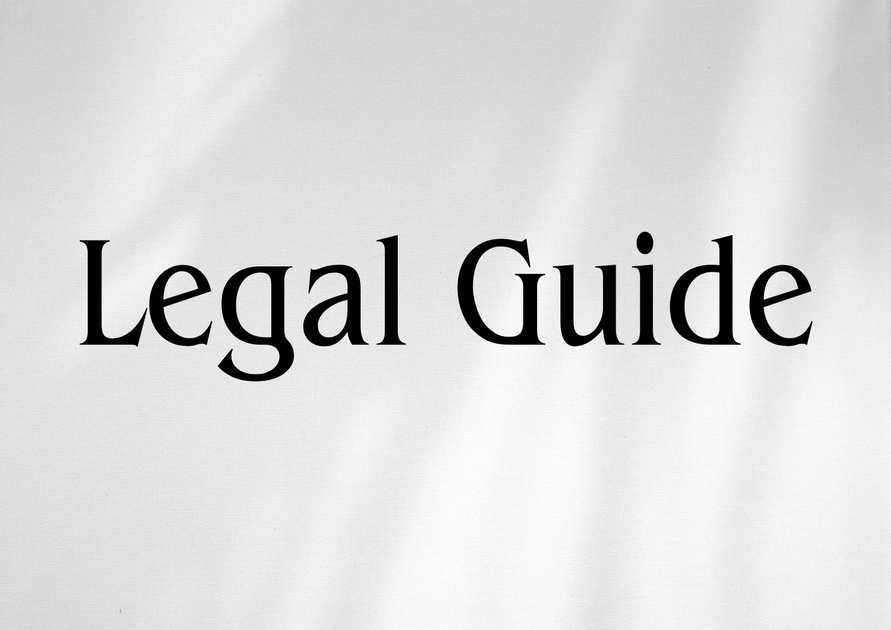Introduction
Air travel is a cornerstone of global business and personal mobility in the GCC, particularly for those residing in the United Arab Emirates (UAE) and the broader Gulf region. With Qatar emerging as a major aviation hub—home to renowned carriers like Qatar Airways—an increasing number of UAE-based individuals and businesses are interacting with the Qatari aviation sector. Understanding the legal framework and steps for filing complaints or claims against airlines in Qatar has become essential, not only due to the sheer volume of cross-border travel but also because of evolving aviation regulations in the GCC since 2022.
This article provides an authoritative roadmap for UAE businesses, executives, HR managers, and legal professionals seeking to address airline grievances in Qatar. Drawing upon the latest legal developments, comparative regulatory mechanisms, and professional risk analysis, this guide offers comprehensive, actionable insights for managing airline disputes efficiently and within compliance boundaries. The discussion is framed in consultation with core UAE legal principles and regulatory harmonisation efforts within the region, referencing official legal resources and federal decrees where relevant.
Table of Contents
- Legal Framework Governing Airline Complaints in Qatar
- How UAE Laws Relate to Airline Claims in Qatar
- Common Grounds for Filing Airline Complaints in Qatar
- Step-by-Step Process to File a Complaint or Claim
- Comparative Analysis: Old vs. New Aviation Consumer Rights
- Case Studies and Practical Scenarios
- Risks, Enforcement, and Strategies for Legal Compliance
- Best Practices for UAE Clients Dealing with Qatar Airlines
- Conclusion and Forward-Looking Insights
Legal Framework Governing Airline Complaints in Qatar
Overview of Qatari Aviation Law
Qatar regulates its civil aviation sector primarily under Law No. 15 of 2002 (the Civil Aviation Law), supplemented by executive regulations and the Qatar Civil Aviation Authority (QCAA) guidelines. QCAA plays a crucial oversight role, setting technical and service standards, consumer complaint procedures, and mechanisms for dispute resolution. Qatar is also a party to international frameworks such as the Montreal Convention (1999), which governs air carrier liability for passengers, baggage, and cargo across signatory states. These conventions are given force under Qatari law and shape passenger rights in parallel with domestic statutes.
Key Legal Authorities and Official Resources
- Qatar Civil Aviation Authority (QCAA): The primary regulator, responsible for aviation safety, consumer protection, and complaints management (caa.gov.qa).
- Qatar Ministry of Transport and Communications: Directs national transport policy, which includes aviation consumer rights.
- International Conventions: Montreal Convention (1999), Warsaw Convention (1929, as amended).
Practical Insight: The QCAA Consumer Protection Department is the official point of contact for airline complaints. Resolution timelines and appeal procedures are dictated by internal QCAA regulations. Businesses and individuals should maintain documentary evidence (tickets, correspondence, receipts) at all times.
Interaction with International Law
Qatar’s adherence to the Montreal Convention ensures alignment with international aviation liability standards. Passengers from the UAE thus benefit from similar protection as under UAE Federal Decree-Law No. 20 of 1991 concerning Civil Aviation, with respect to passenger delay, lost baggage, and bodily injury.
How UAE Laws Relate to Airline Claims in Qatar
Cross-Jurisdictional Considerations
Although UAE laws do not directly apply in Qatar, UAE-based clients have legitimate interests in airline disputes arising in Qatar. UAE law—particularly Federal Decree-Law No. 20 of 1991 (as recently amended) and Cabinet Resolution No. 12 of 2021—provides a comparative framework for contractual obligations, liability, and consumer dispute resolution in aviation. These statutes mirror many elements found in Qatari law, particularly in the context of GCC cooperative agreements and shared commitments under the Montreal Convention.
Regulatory Harmonisation
Efforts to harmonise standards within the GCC mean that parties can expect broadly similar standards of care and processes when filing claims, though procedural requirements differ. UAE-based companies managing corporate travel or HR policies should update compliance protocols to reflect Qatari procedural nuances.
| Aspect | UAE Law | Qatar Law |
|---|---|---|
| Main Statute | Federal Decree-Law No. 20 of 1991, UAE | Law No. 15 of 2002, Qatar |
| Consumer Agency | General Civil Aviation Authority (GCAA) | Qatar Civil Aviation Authority (QCAA) |
| Complaint Process | GCAA portal/email | QCAA portal/email |
| International Law | Montreal Convention | Montreal Convention |
Common Grounds for Filing Airline Complaints in Qatar
Recognised Categories of Complaints
- Flight Delays or Cancellations: Unjustified delays, missed connections, or cancellations without prior notice or compensation.
- Denied Boarding: Overbooking with no alternative arrangements or compensation.
- Lost, Damaged, or Delayed Baggage: Non-delivery or damage to checked-in baggage (governed by Montreal Convention as per Article 17).
- Failure to Provide Special Assistance: Non-compliance with obligations towards persons with disabilities.
- Poor Customer Service or Unfair Treatment: Discriminatory or negligent conduct by airline staff.
Statutory Rights and Limitations
The Montreal Convention (adopted via Article 105 of Law No. 15/2002) imposes statutory limitations on damage claims, usually within two years of the incident. Financial caps and evidentiary standards also apply, as interpreted by Qatari and international courts.
Step-by-Step Process to File a Complaint or Claim
1. Preliminary Steps
- Document the incident with flight details, receipts, and communication logs.
- Submit an official complaint to the airline—preferably in writing or via their dedicated complaints portal. Most airlines operating in Qatar are obliged to acknowledge receipt within 7 to 14 days.
2. Referral to the QCAA
- If dissatisfied, refer the complaint to the QCAA Consumer Protection Department (Passenger Complaints Service).
- Provide full supporting documentation. QCAA investigates most cases within 30 days, though complex matters may take longer.
3. Escalation and Legal Proceedings
- If no resolution, legal proceedings may be initiated before the competent Qatari courts. Claims are typically civil, governed by local procedural codes.
- In cases of cross-border disputes (e.g., connecting flights starting in the UAE), jurisdictional rules of the Montreal Convention may apply, allowing suit in the country of destination or contract.
4. Alternative Dispute Resolution
- Mediation and amicable settlement via airline or QCAA channels are encouraged.
- Certain airlines offer internal ombudsman services or use mediation panels for expedited outcomes.
| Step | Timeline | Key Documentation |
|---|---|---|
| File Airline Complaint | Immediate | Ticket, ID, Boarding Pass, Receipts |
| QCAA Submission | Within 30 days of airline’s final response | All correspondence and evidence |
| Legal Action | Within 2 years of incident | Same as above, plus legal notice |
Visual suggestion: Place a process flow diagram here to illustrate the complaint escalation route from airline to QCAA to court.
Comparative Analysis: Old vs. New Aviation Consumer Rights
The region’s civil aviation laws have evolved in response to increased passenger volume, GCC consumer protection efforts, and lessons from recent disruptions (such as the COVID-19 pandemic). The following table analyses salient shifts between earlier frameworks and current regulations.
| Feature | Pre-2010 Regime | Current Regime (Post-2010, incl. 2022 updates) |
|---|---|---|
| Time to Respond | No official response window | 7–14 days to acknowledge complaint |
| Compensation Rules | Unclear or case-by-case | Defined per Montreal Convention & QCAA policy |
| Baggage Claims | Capped at lower, fixed rates | Montreal Convention levels (approx. SDR 1,288 per bag) |
| Accessibility Obligations | Limited | Specific obligations for persons with disabilities |
| Online Complaint Channels | Minimal | Dedicated portals and digital submission (QCAA, airlines) |
Implications for UAE Businesses and Professionals
Contemporary regulations are more consumer-centric, supporting swifter dispute handling and transparent liability caps. Compliance protocols—especially within HR and travel departments—must be updated to reflect these nuanced rights and timelines for action.
Case Studies and Practical Scenarios
Case Study 1: Executive Misses Meeting Due to Flight Cancellation
Scenario: A UAE-based executive’s flight from Doha to Abu Dhabi is cancelled without adequate notice or alternative arrangements, resulting in substantial business disruption.
Legal Outcome: The executive files a complaint to the airline, then escalates to QCAA, which mandates compensation equivalent to the ticket price and costs incurred for missed appointments. Under the Montreal Convention, the airline’s liability for proven losses is triggered, with statutory caps. The outcome hinges on documentation and earnestness in pursuing remedies promptly.
Case Study 2: Lost Luggage for a Multinational UAE Firm’s Employee
Scenario: An employee of a Dubai-based multinational arrives in Doha to find their luggage missing, and the airline offers no immediate resolution.
Legal Outcome: The company’s HR submits a formal report, referencing receipts for clothing and essentials incurred. Compensation is awarded up to the Montreal Convention’s SDR limit, assuming due reporting and reasonable grounds. The HR team upgrades their compliance protocols to pre-brief staff on correct reporting and documentation procedures.
Hypothetical Example: Special Assistance for Disabled Travellers
Scenario: A UAE family’s disabled member experiences non-provision of required assistance at Hamad International Airport.
Legal Insight: Both QCAA and the airline are cited for non-compliance with disability provisions in line with international best practice and Qatari law. The case underscores the need for companies and families to reference the latest QCAA accessibility guidelines prior to travel.
Risks, Enforcement, and Strategies for Legal Compliance
Risks of Non-Compliance for Airlines and Travellers
- Regulatory Penalties: Airlines found in breach of QCAA mandates face administrative fines and, in egregious cases, suspension of operating licenses.
- Legal Liability: Civil damages under Qatari law and the Montreal Convention, subject to documented losses and statutory caps.
- Reputational Damage: Adverse publicity and loss of business, especially in the competitive GCC aviation sector.
- Missed Statutory Deadlines: Delay in lodging complaints can result in loss of rights due to tight limitation periods (usually 2 years).
Recommended Compliance Strategies
- Establish internal travel and incident-reporting protocols within UAE firms for all employees travelling in the GCC.
- Document airline interactions comprehensively—screen captures, written communications, receipts, and official notices.
- Timely escalate unresolved airline complaints to QCAA and track communication logs.
- Educate HR, travel teams, and staff on statutory timelines and compensation limits under Qatar and UAE law.
- Seek legal advice for cross-jurisdictional claims or to clarify overlapping procedural requirements between the UAE and Qatar.
Visual suggestion: Insert a compliance checklist table here for in-house legal and HR teams.
Best Practices for UAE Clients Dealing with Qatar Airlines
- Before booking, review airline passenger charters on the QCAA website and verify latest complaint procedures.
- Train staff on immediate steps to be taken when incidents occur—report at airport desks and retain all documentary proof.
- Monitor any legal or regulatory updates via official sources (QCAA, UAE Federal Gazette) for changes impacting cross-border travel.
- For persistent, high-value claims, consider appointing local counsel in Qatar familiar with aviation and consumer law.
- Liaise proactively with airline customer service; written communications provide stronger foundations for escalation.
Conclusion and Forward-Looking Insights
The evolving aviation landscape in the GCC, and the interplay between UAE and Qatari aviation laws, necessitate a nuanced and vigilant approach for both individuals and businesses engaging in cross-border air travel. Qatar’s legal infrastructure provides robust mechanisms for airline complaints, but success hinges on timely action, comprehensive documentation, and procedural accuracy.
In light of post-2022 updates—affecting timelines, compensation rules, and enforcement priorities—UAE-based companies should recalibrate their compliance architecture, leveraging ongoing legal harmonisation across the GCC. By adhering to best practices, investing in staff education, and consulting legal professionals where claims grow complex, organizations and executives can minimise risk, ensure regulatory compliance, and secure fair remedies in the event of airline grievances.
Looking Ahead: As regulatory convergence between UAE and Qatar deepens, expect greater clarity and opportunity for digital resolution tools, harmonised compensation standards, and streamlined dispute resolution. Proactive legal readiness will be vital for businesses determined to navigate the post-pandemic aviation landscape with confidence and compliance.




